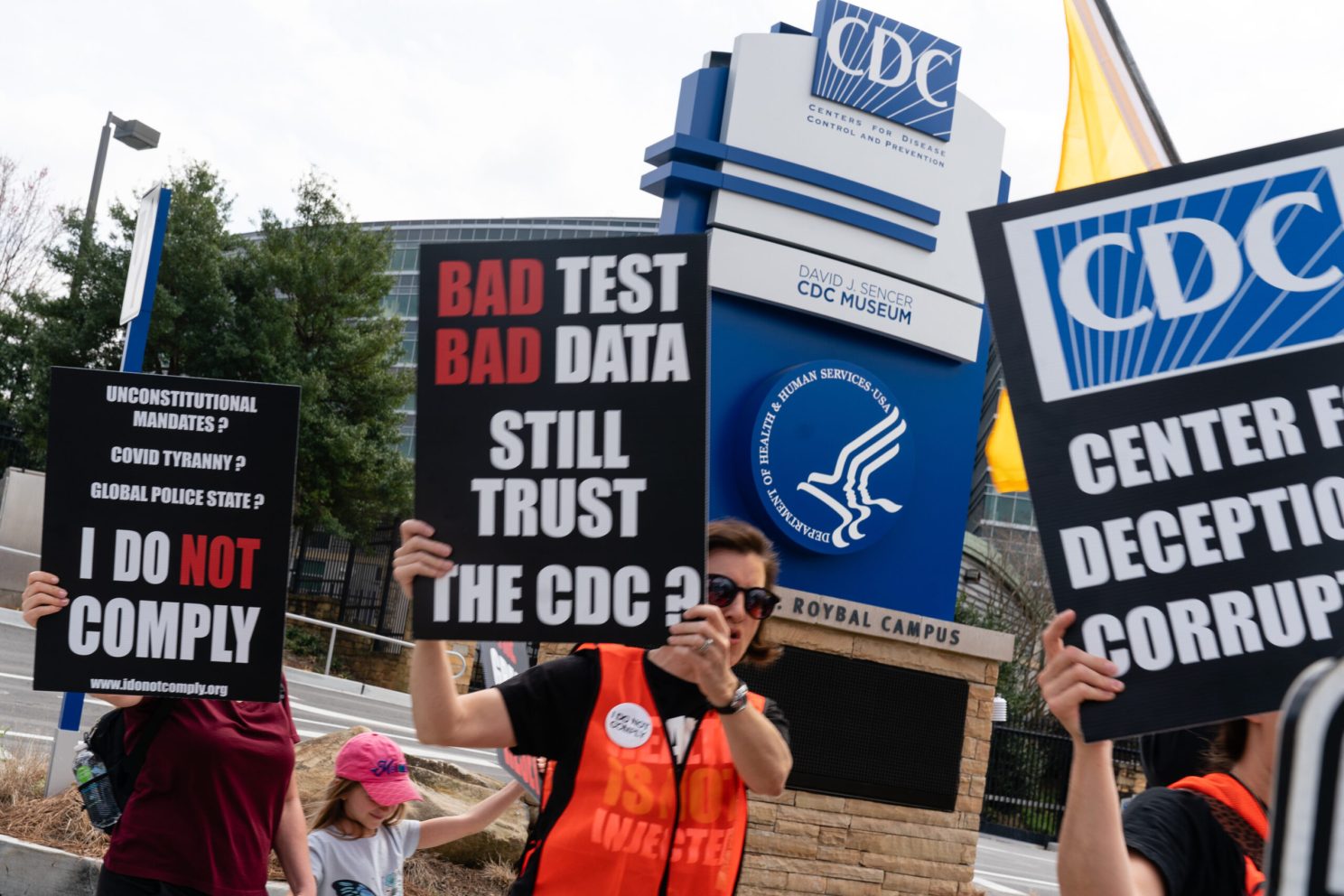Is vaccine misinformation affecting our health?

People hold signs at a protest against masks, vaccines, and vaccine passports outside the headquarters of the Centers for Disease Control (CDC) in Atlanta, Georgia. Elijah Nouvelage/Getty Images
In a recent webinar presented by the Kennedy School’s Shorenstein Center on Media, Politics and Public Policy, Matthew Baum, the Marvin Kalb Professor of Global Communications, and a team of principal investigators with the COVID States Project explained the results of their latest report.
A series of 19 surveys conducted from April 2020 to July 2021, indicated that not only do people believe false claims about COVID-19 vaccinations, but they are more likely to jeopardize their health because of the misinformation. Baum, one of the principal investigators, began the discussion with an overview of the project and the sampling techniques. “Our surveys include samples of three to 500 people per wave, across all 50 states plus the district of Columbia. Typically 20 to 25,000 total respondents per wave,” he said. “We also, in parallel, collected social media data from survey respondents who agreed to allow us to do so.”
Four vaccine misperceptions were used in the study:
- The COVID-19 vaccines will alter people’s DNA.
- The COVID-19 vaccines contain microchips that could track people.
- The COVID-19 vaccines contain the lung tissue of aborted fetuses.
- The COVID-19 vaccines can cause infertility, making it more difficult to get pregnant.
Mauricio Santillana, assistant professor at Harvard Medical School, said, “Misinformation is happening in the context of a public health crisis.” He showed that from September of 2020 to February of 2021, the most deaths occurred in regions where misinformation was more prominent. “The effectiveness of non-pharmaceutical interventions such as mask wearing and social distancing, was very well established, and at that point we feel that many of the deaths that happened could have been prevented,” Santillana said.
John Della Volpe, director of polling at the Institute of Politics, explained how the misinformation affected people of different generations, races, and voting preferences. He also analyzed vaccine misconception by news sources. Of the respondents who said one or more of the misconceptions were accurate, 22 percent said they got their news from Facebook. Of those, 29 percent reported that they might get vaccinated and 25 percent said they would not. Vaccine hesitancy was also linked to the lack of any information. “I would say one thing that we have found is that people who are less engaged with the news do tend to be more hesitant,” Volpe said. “There are some instances where no news is worse on this dimension. I think that this is showing a lack of health literacy in some very important communities, but also civic education, which attacks the core element of trust in institutions.”




